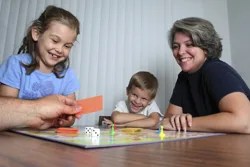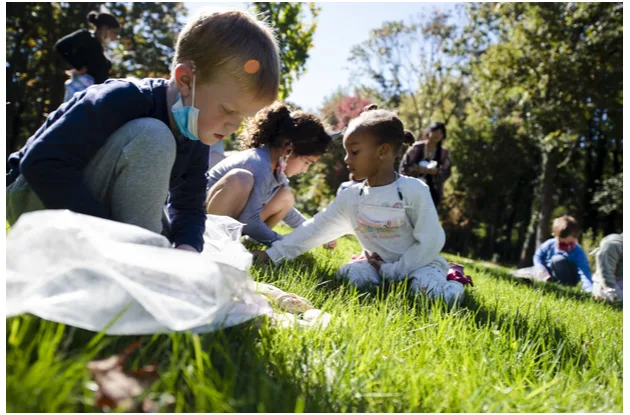 Developing solid math skills is a necessity for all children. Students who take math early in their educational careers set a stronger foundation for success in school and throughout life.
Developing solid math skills is a necessity for all children. Students who take math early in their educational careers set a stronger foundation for success in school and throughout life.
Skills taught in math courses cross over into other subject areas, such as English and writing. For instance, math students learn good problem-solving skills, which improve their ability to create a coherent essay — a task that requires students to shift between abstract concepts and supporting facts.

By taking a fun, creative approach to math outside the classroom, parents can help their young children develop strong skills and a positive, confident attitude toward an often-maligned subject.
Here are some ideas to foster a love of math in your children:
—Play popular board games that require basic math skills. Chutes and Ladders and RackO develop number sense. “24” and Yahtzee help computational speed and accuracy, and problem-solving skills are developed through games like TriOminos and Connect Four.
—Assemble puzzles with your child. Puzzles help children learn spatial and visual organization. These are the basic lessons of geometry.
–A deck of cards can be a valuable math tool. Card games begin to teach the lesson of probability and can reinforce addition and subtraction memorization for children learning basic math facts.
—Dice are helpful for younger children to practice number facts to 6. If they are stumped, they can count the dots to find the sum.
—Relate math to your children’s favorite sport. Keeping score is a math exercise! Ask them to calculate the number of points needed for their favorite team to win. Encourage them to create multiple point combinations to reach that score.
—Use driving time as math game time. Invite children to figure out how long it will take to get to the destination, or estimate how much it will cost to fill up the gas tank.
—Play other car games like “Guess My Number”. This reinforces logic skills with children of all ages.
—If your child receives an allowance, use it to formulate mathematics problems and teach them about saving. For older children, relate percentage problems to their allowance.
—Dominoes are a great game for children of all ages. Smaller children can use them to recognize similar quantities, while older children can explore the concepts of probability.
For more helpful tips, call 800-31-SUCCESS or visit http://tutoring.sylvanlearning.com.
RICHARD E. BAVARIA, Ph.D. is vice president of education for Sylvan Learning Center. He directs all academic programs used in the Sylvan Learning Center network, including educational content and new curriculum.





















